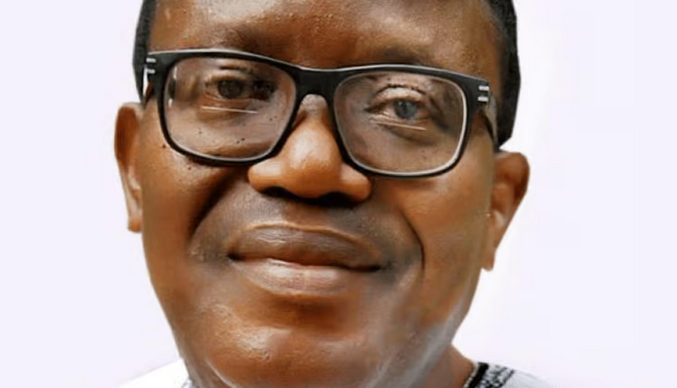AFRICA has been so torn by violence that it has witnessed some of the most stupid wars in contemporary history. One that deserves a gold medal in this wise is that in Sudan where the Sudanese Armed Forces, SAF, and its offshoot, the Rapid Support Forces, RSF, conspired to deny the civil populace its April 11, 2019 victory in ousting President Omar al-Bashir.
The military leaders had opportunistically aborted the uprising and shared the political offices amongst themselves. The SAF chief, General Abdel Fattah al-Burhan was made the Head of State and the RSF leader, General Mohammed Hamdan ‘Hemedti’ Dagalo the Deputy Head of State. Soon, they turned their guns on each other, tearing the country into two right from Khartoum, the capital. In the process, millions have been displaced and war crimes committed.
The silver medal goes to South Sudan where after 22 years of renewed struggles, it won independence from Sudan. Then they turned their guns on themselves. One side led by President Salvar Kiir and the other, by Vice President Riek Machar.
There are the endless wars in the Democratic Republic of Congo, DRC, that have gone on for decades. A number of African countries have been drawn into this war at various times. These include Rwanda, Uganda, Burundi, Namibia, Angola and Zimbabwe. Recently, South African forces, engaged in peace keeping in that country, were caught in a cross fire as M23 rebels swept through parts of the DRC.
The West African region has been terrorised by roving terrorists. While ordinarily, this should unite the countries, it has divided them. Niger, Burkina Faso and Mali have broken away and in the process, thrown the French military out of their countries. The majority of the region is led by Nigeria, a continental giant whose foreign policy seems to be ‘friend to all, enemy to none’.
There is separatist violence going on in Angola, Mozambique and the Central African Republic.
Despite the high number of conflicts in the continent, it has had no continentally acceptable security think tank or centre. That task has been mainly left to international bodies which, in themselves, may not be neutral.
This situation inspired the May 19, 2025 birth of what was tagged the inaugural International Security Conference on Africa, ISCA, by a cross section of African society leaders.
The organisation which announced its birth in Kigali on May 19, 2025, said it “is an international non-governmental organisation dedicated to fostering dialogue, collaboration and actionable solutions to address security challenges across the African continent.”
The ISCA says it “aims to transform the narrative around African self-perception, empowering Africans to reclaim their dignity and rightful place in the global community”. It added that the ISCA “embraces diversity and ensure equal opportunities, fostering an environment where all voices are heard.”
President Paul Kagame left no one in doubt as to the objectives of the ISCA. First, he declared thus: “Africa’s future, particularly in matters of peace and security, cannot be outsourced.” Secondly, that for too long, the continent’s security has been treated as a burden to be managed by foreigners with “minimal input from us, and often without the benefit of our context or consent”. This approach, he said, has failed to deliver, both for the continent and the universe.
The Conference, he said, is a beginning and a conscious effort to change the narrative and the substance of African engagement with global security debates. He added: “Moving forward, we must participate not from the margins, but as a credible and capable partner.”
Kagame suggested three critical pillars in realising this. Africans, he said, cannot complain about external meddling, while simultaneously producing the conditions for such interference. He argued that: “Sovereignty is not just about defending borders. It is about taking responsibility for our security, both as states, and collectively as a continent. Neglecting this duty, allows others to step in, leading to a loss of credibility and control.”
The Rwandan President also made a case for the African Union, and its Peace and Security Council to handle the continent’s common security concerns.
He argued that governance and security are Siamese twins, submitting that when one is weak, the other is compromised and, that both need to be present for there to be trust, and development. He told his fellow African leaders: “Our job, as leaders, is to create an environment where people can live with dignity, enjoy their rights, and look to the future with hope and confidence. He argued that success depends on continental unity because: “Even with the best domestic systems in place, no country today can secure itself in isolation.”
Later, President Kagame received in audience at the Rwandese State House, Professor Ibrahim Gambari, Nigeria’s one-time Foreign Affairs Minister and former super Envoy of the United Nations, UN. Gambari who holds Rwanda’s national honour is Member, Advisory Council of the ISCA. His duties include providing oversight on stakeholder engagement and, advising on strategic decisions and partnerships.
Ambassador Frank Mushyo Kamanzi, a retired Lieutenant General, is the Executive Secretary. He was the Force Commander of the UN Mission in South Sudan and, former Force Commander of the African Union – United Nations Hybrid Operation in Darfur.
The inaugural conference which drew military, defence, intelligence, diplomatic, political, policy and civil society experts, had over 600 delegates. It held under the theme: “Reshaping Africa’s Landscape in a Dynamic, Complex Global Environment.”
The discussions centred on terrorism, insecurity, instability, transnational crimes, resource production and utilization, role of technology, value-addition, the needs of Africa and the primacy of self-reliance.
A worry at the conference is the global race for minerals acquisition and storage. This is what the United States strives for, as it seeks to control minerals in Ukraine. There is, of course, the naked exploitation of Africa’s minerals which has led to conflicts, including the long-drawn wars in the DRC.
The ISCA conference also featured exhibitions, including arms produced in Africa and weapons being sold by over ten arms manufacturers in the world.
However, the birth of such an organisation may not fundamentally change the praxis of security on the continent. A lot will depend on its practical programmes, the independence of the organisation both from external powers and African leaders who may have their own individual agenda.
There is also the issue of funding. If there are no independent sources of funding, the ICSA may suffer the same paralysis the African Union, AU, suffers. Incidentally, the Chair of the ISCA Advisory Board, Moussa Faki Mahamat, was the AU Commission Chair for eight years, from 2017. His experience might influence the direction of the ISCA. Definitely, the determination to stop or reduce the continent’s wars require more than conferences.
*Lakemfa writes from Abuja



